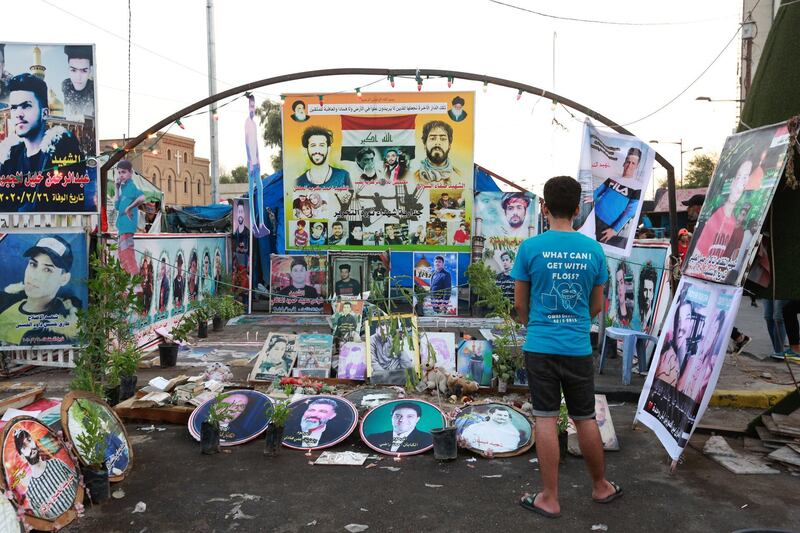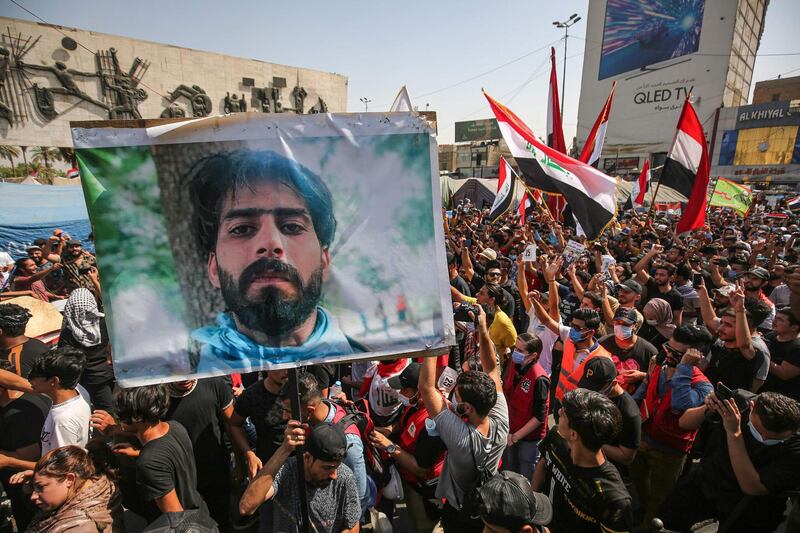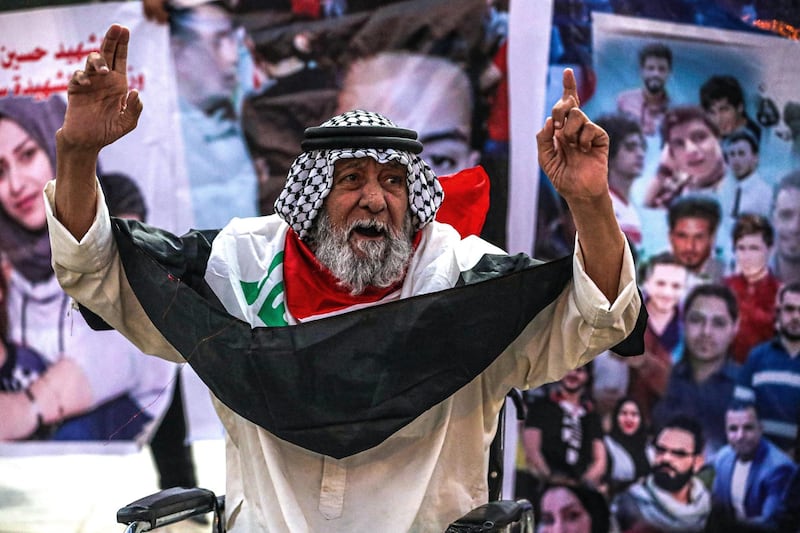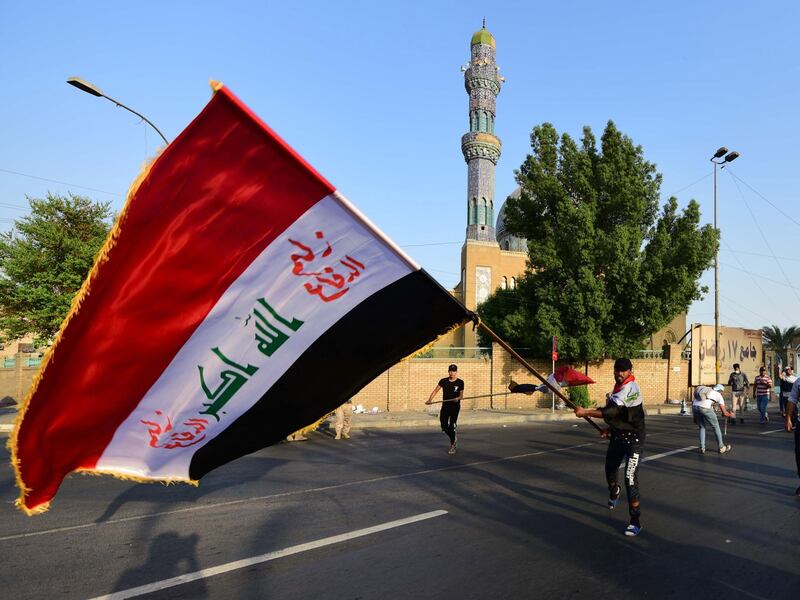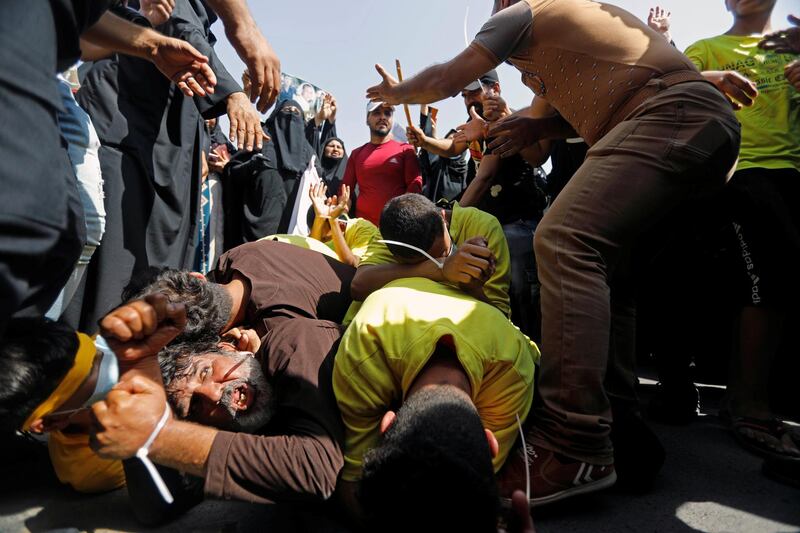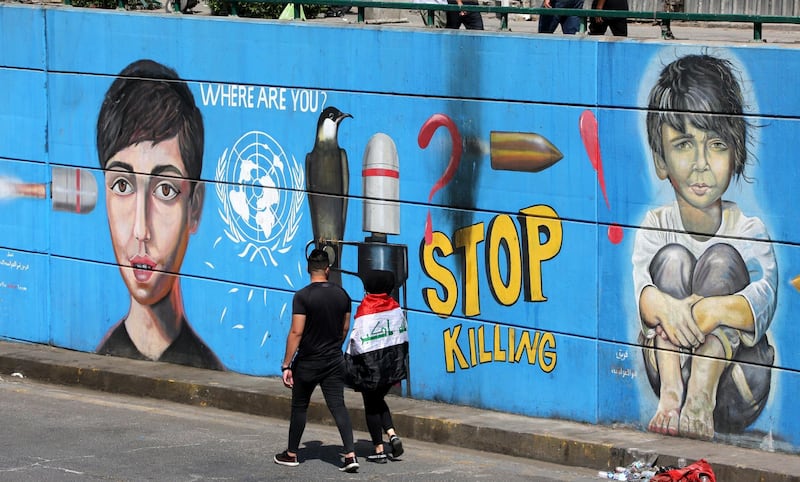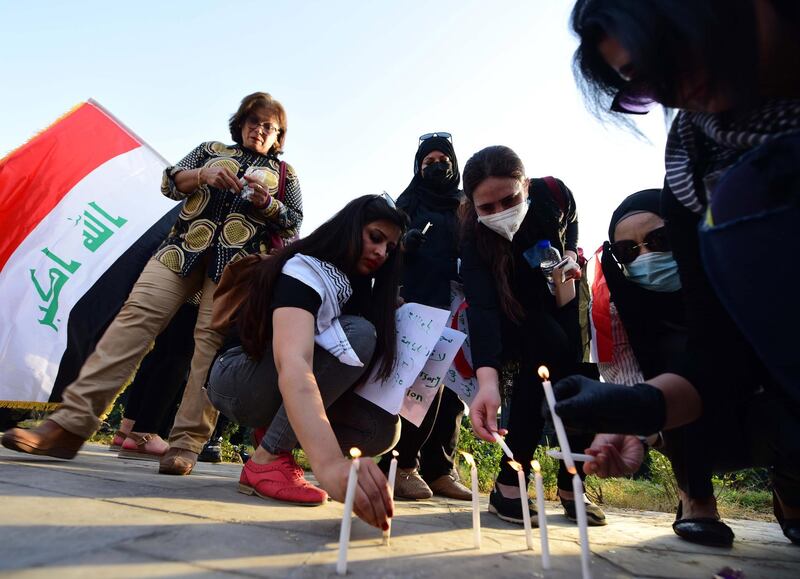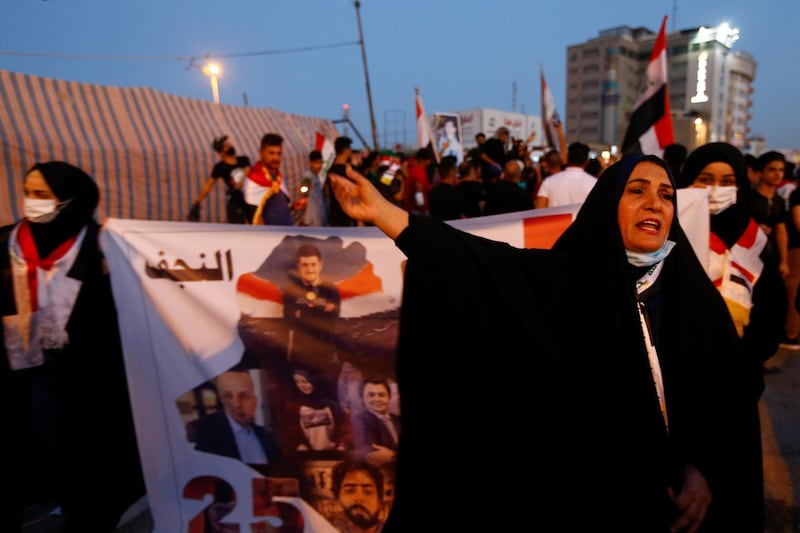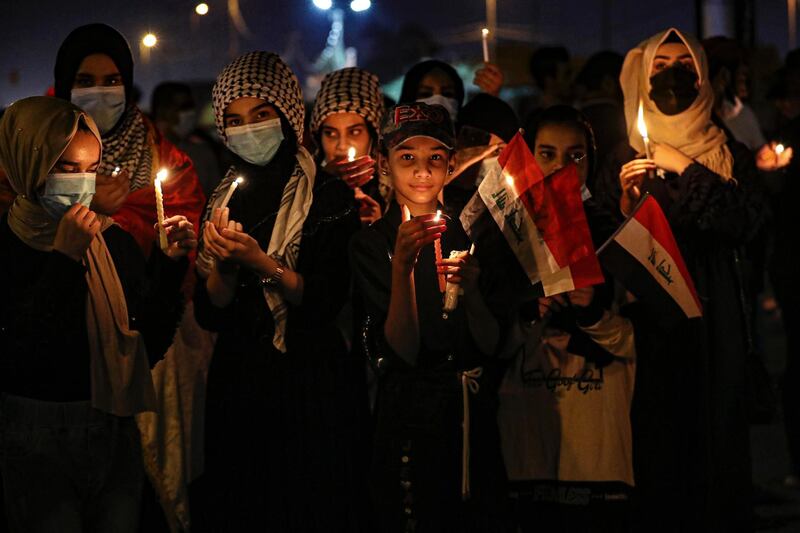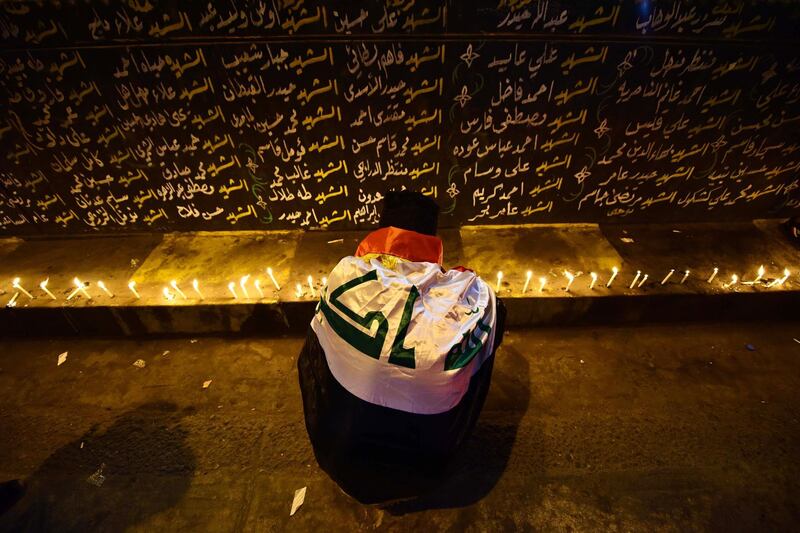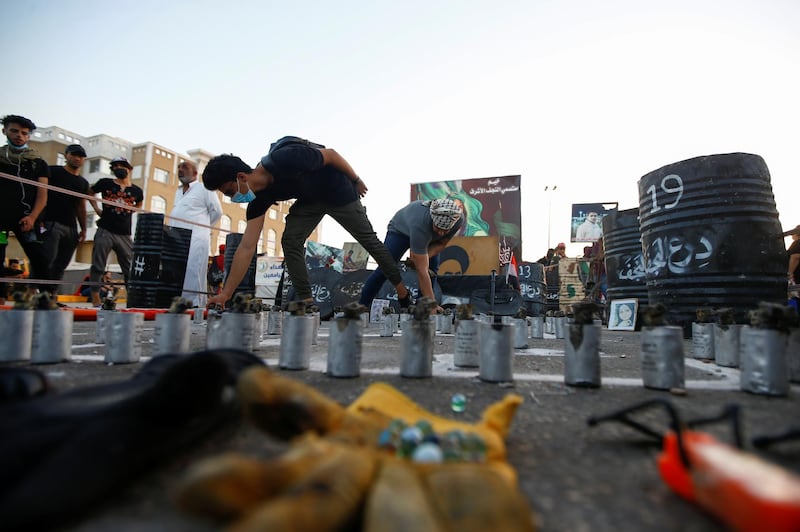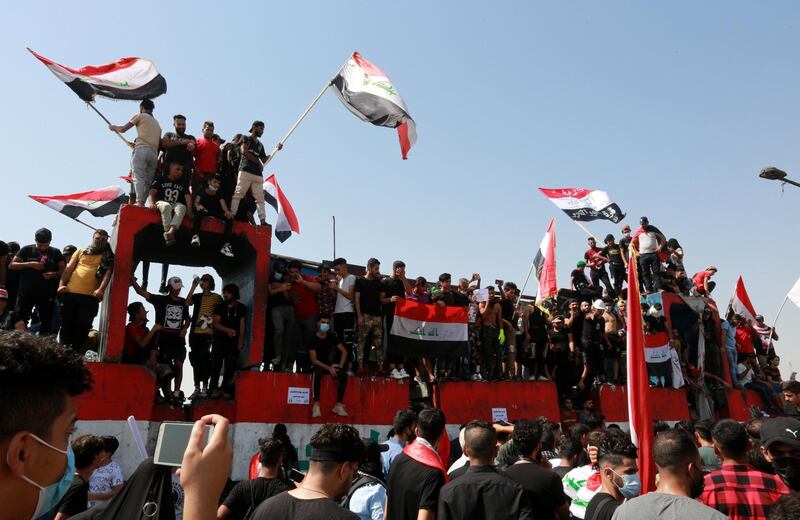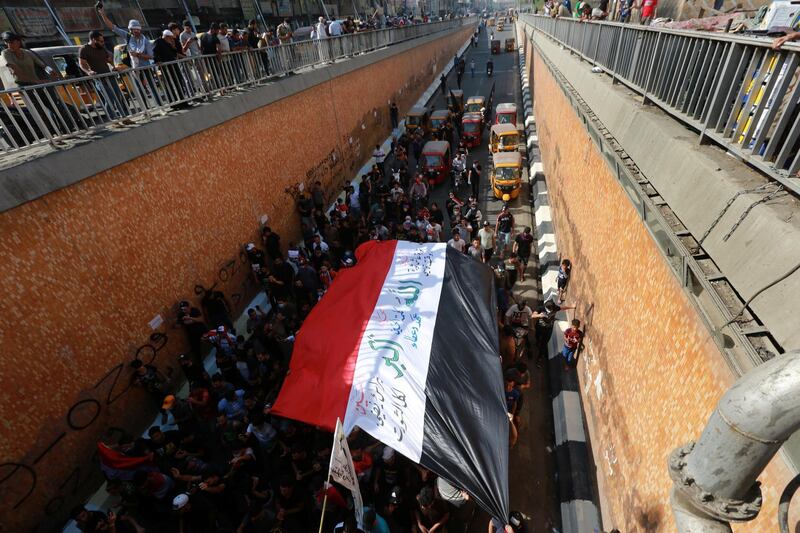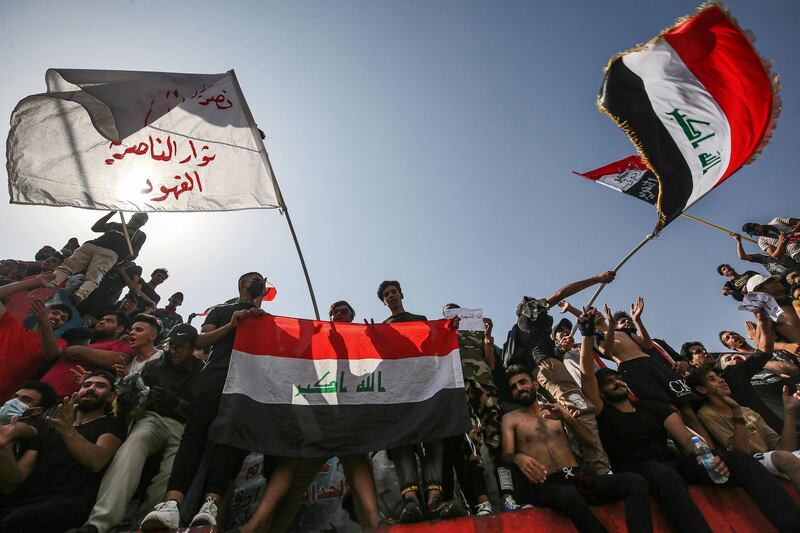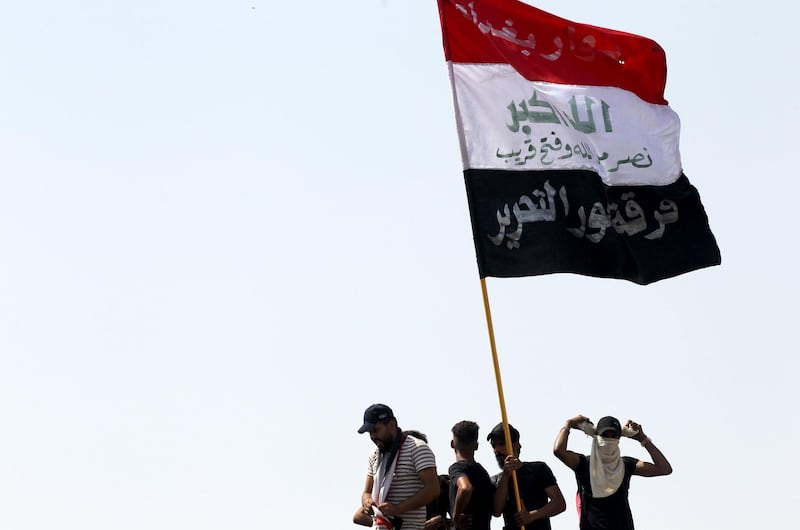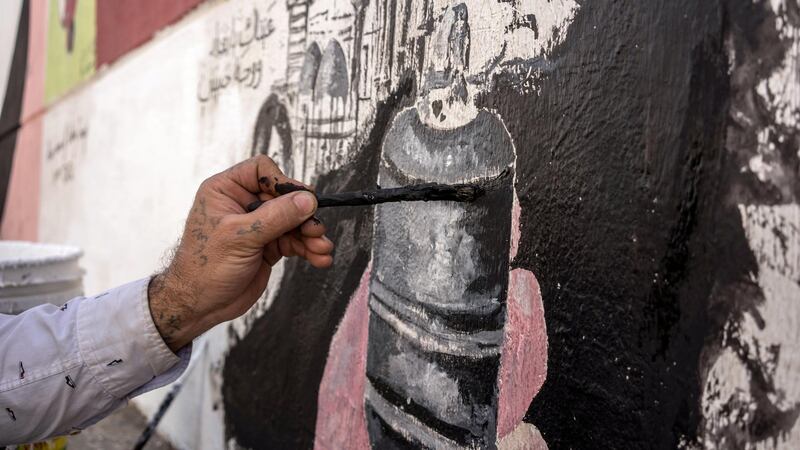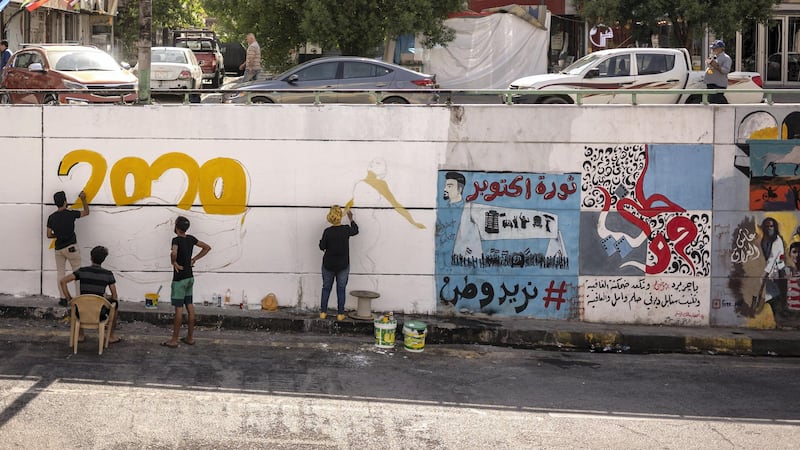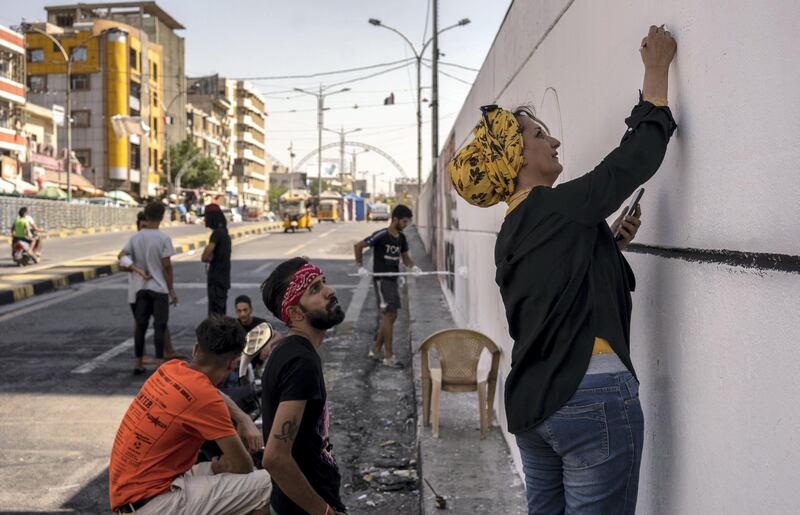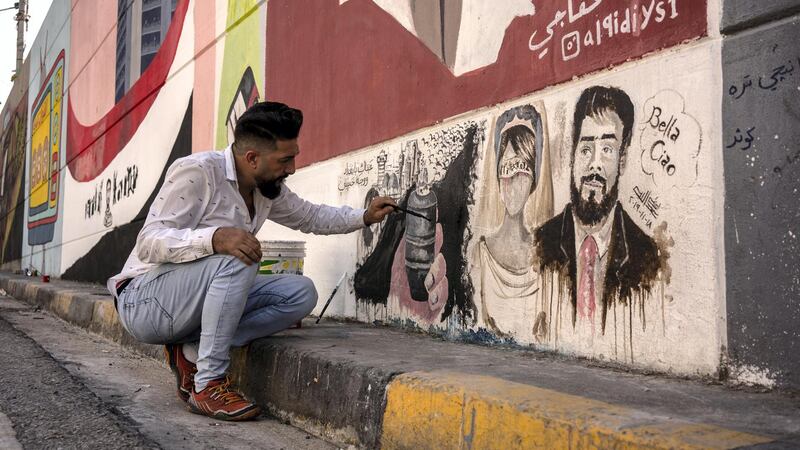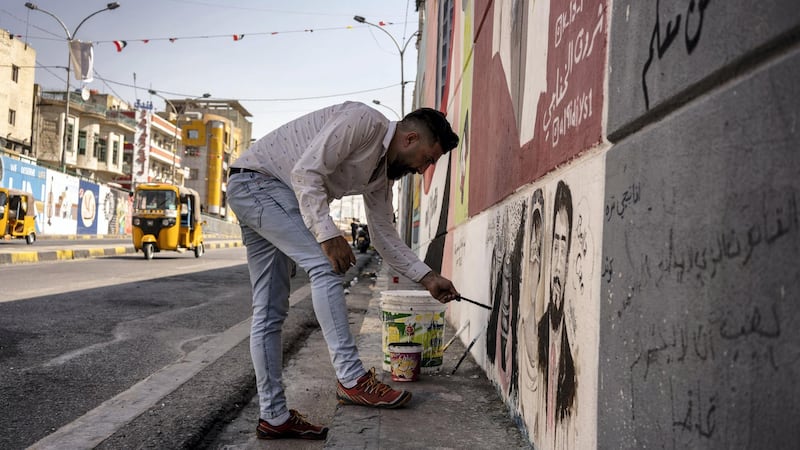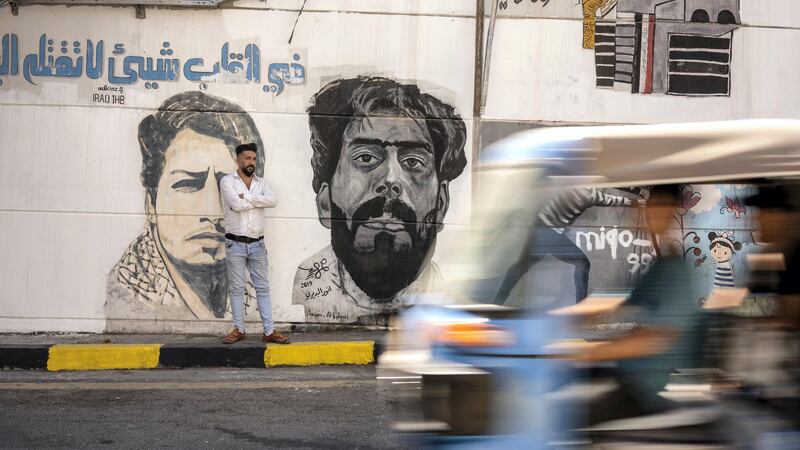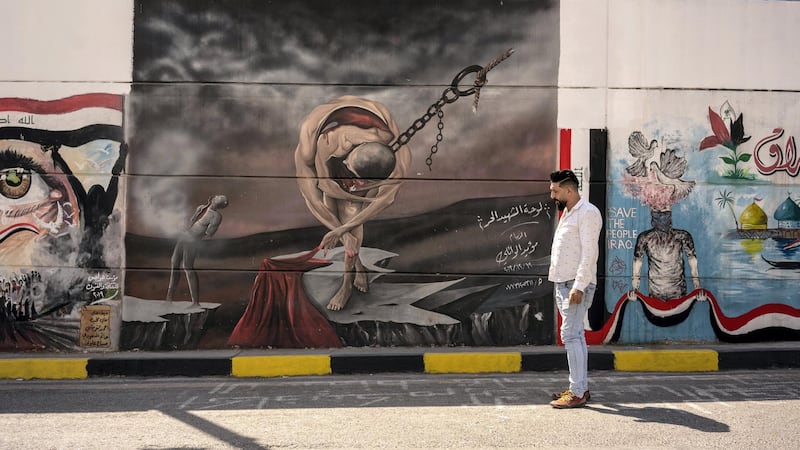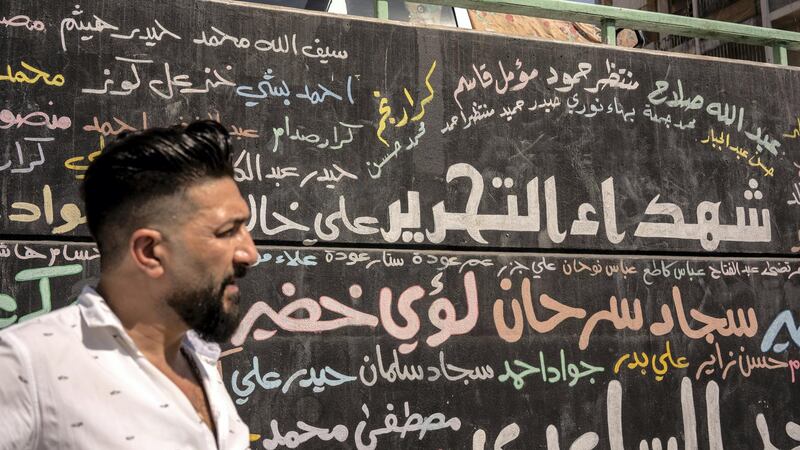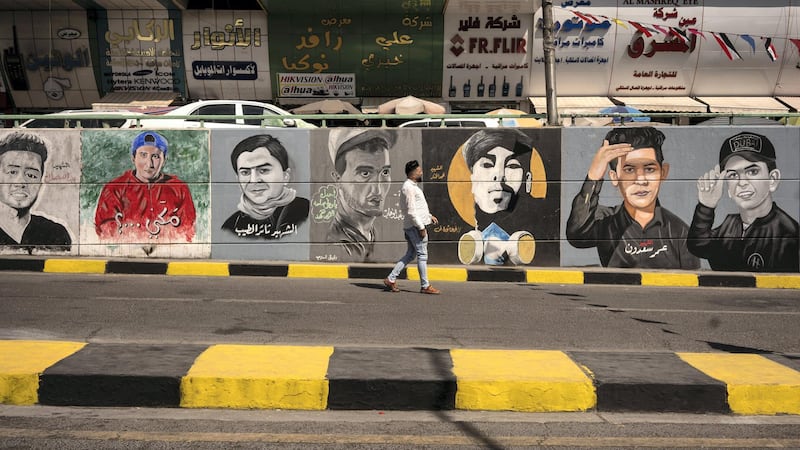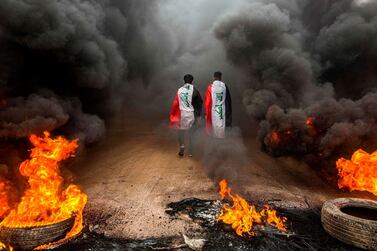Iraqi protesters began to gather in Baghdad’s Tahrir Square on Thursday to mark one year of demonstrations that rocked the country by ousting the former government.
The square became the centre of last year's anti-government protests where the public demanded an overhaul of the political system, more employment opportunities and better services.
On October 1 2019, demonstrators were met with force from government security forces, including live fire. The violence continued over the last year, resulting in the death of over 600 protesters and thousands of injuries.
"I couldn't sleep since last night, I was waiting for today to arrive so I could go to Tahrir Square and participate alongside the protesters," Inas Jabbar, a human rights activist, told The National.
“We’ve become a family and will continue to demand for our basic rights.”
Hundreds, possibly thousands, of Iraqis were expected to take to the streets of the capital at 4pm on Thursday to commemorate those killed and continue the fight for a better future for the country’s young people.
Today’s reunion “will be filled with hope”, she said, adding that the public never lost hope that change can happen.
“I hope we will get a nation that will protect us, give us rights and most importantly a normal life,” Ms Jabbar said.
A sense of patriotism filled Baghdad's streets on Thursday, Suhalia Assam, a civil rights activist, told The National.
“We are planning to march this afternoon from Kahramna Square to Tahrir Square to support the protesters. We will carry until our rights are met,” Ms Assam said.
Civil rights activists said the public needs patriotic leaders to help alleviate their suffering.
Explainer: One year since Iraq protests, what has changed?
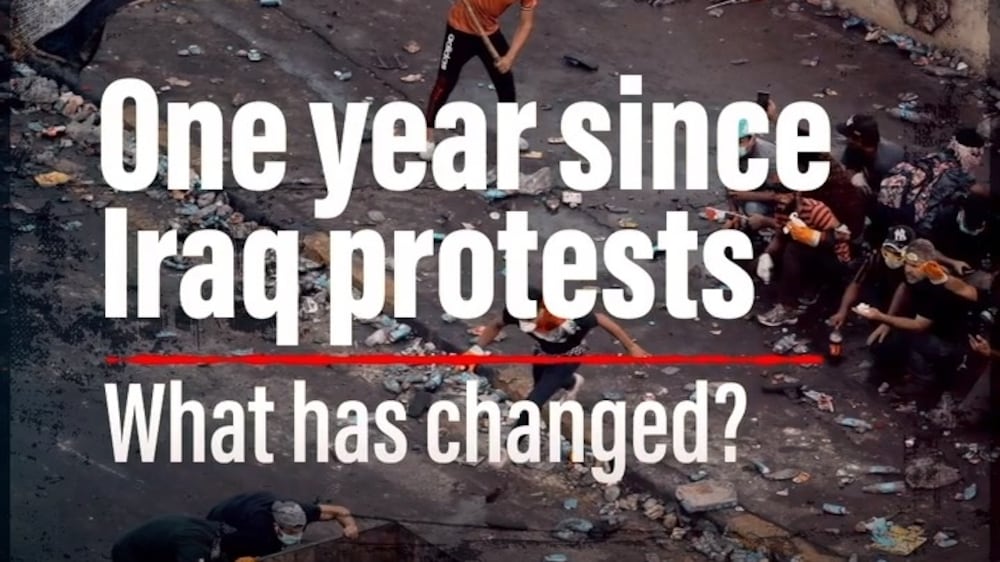
The government has responded to demands for jobs, better services and an end to endemic corruption with vague reform promises that are unlikely to placate Iraqis, she said.
“Since 2003 until now we have only had corrupt officials who have ruined the state’s infrastructure and everything else about it. There has been no development because of their presence,” she said.
“The public has been deprived of its rights and it’s time we get it back,” she said.
Ms Assam said a year has passed and the government has done little to compensate victim’s families and hold perpetrators to account.
The mass demonstrations led to the resignation of Prime Minister Adel Abdul Mahdi, who was replaced in May by Mustafa Al Kadhimi, a former intelligence chief, who promised to clean up the security forces.
Mr Al Kadhimi pledged to investigate the deaths and the incarceration of hundreds of protesters in the unrest that unseated his predecessor.
“Perpetrators have not been held to account, abductions and threats are still occurring against protesters, an example of that is Sajad Al Iraqi,” Ms Assam said.
Mr Al Iraqi has been missing since mid-September after he was last seen in the southern city of Nasiriyah despite a security operation to find him.
“The government has not been able to save him. There is no excuse, these individuals are civil activists, all they are doing is asking for their rights,” she said.
Intimidation and abductions have frequently occurred since the protest movement erupted. Human rights organisations say that hundreds of protesters are still missing.
Members of the Iran-backed armed militias that operate in Iraq are believed to be behind some of the killings and abductions.
Mr Al Kadhimi expressed support for the protest movement and its aims on Thursday, urging “unity” as protesters began to gather. He implored political and security officials to ensure that stability prevails.
“This government was a direct result of the blood and sacrifice made by the country’s youth,” Mr Al Kadhimi said on Thursday morning.
